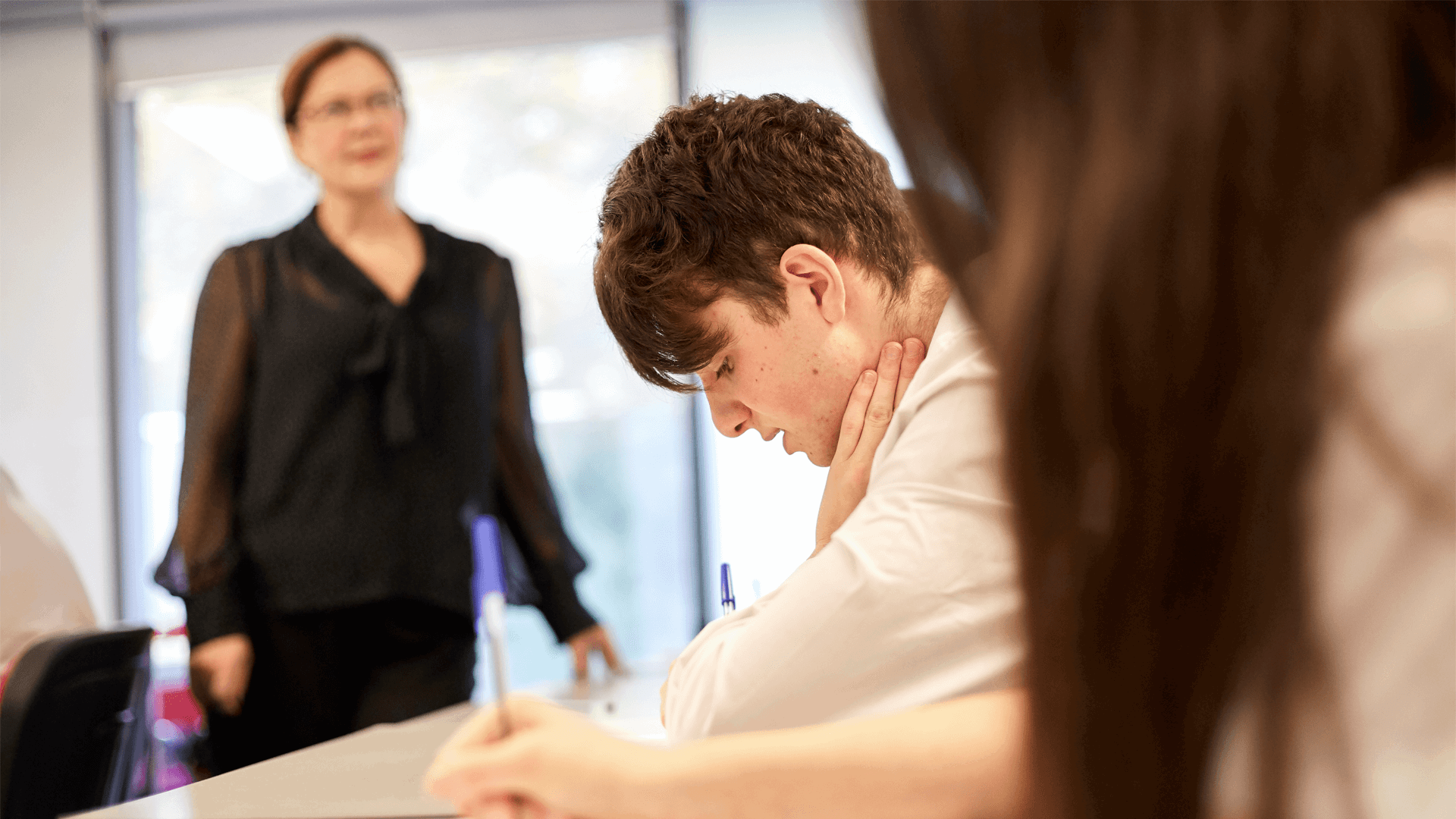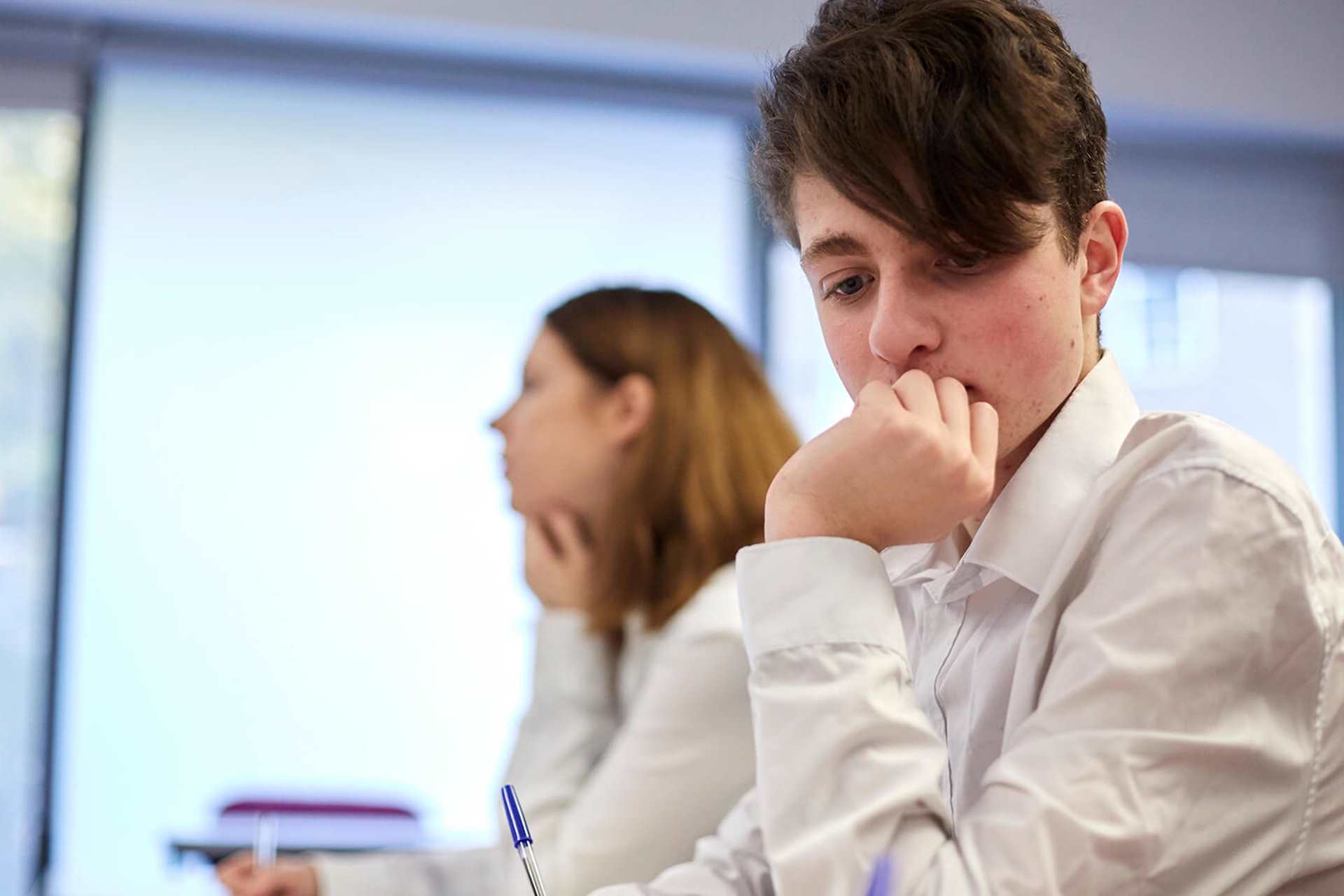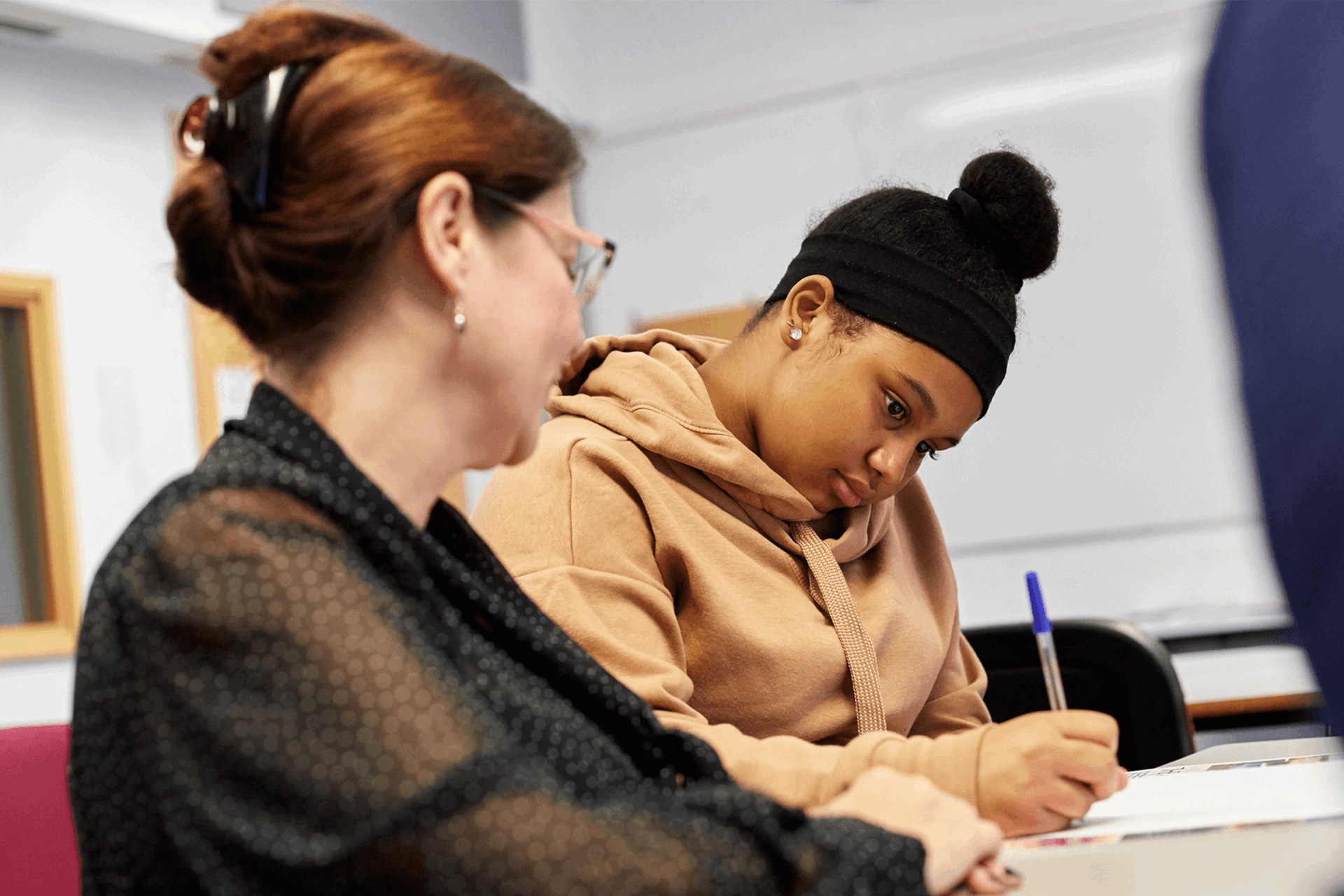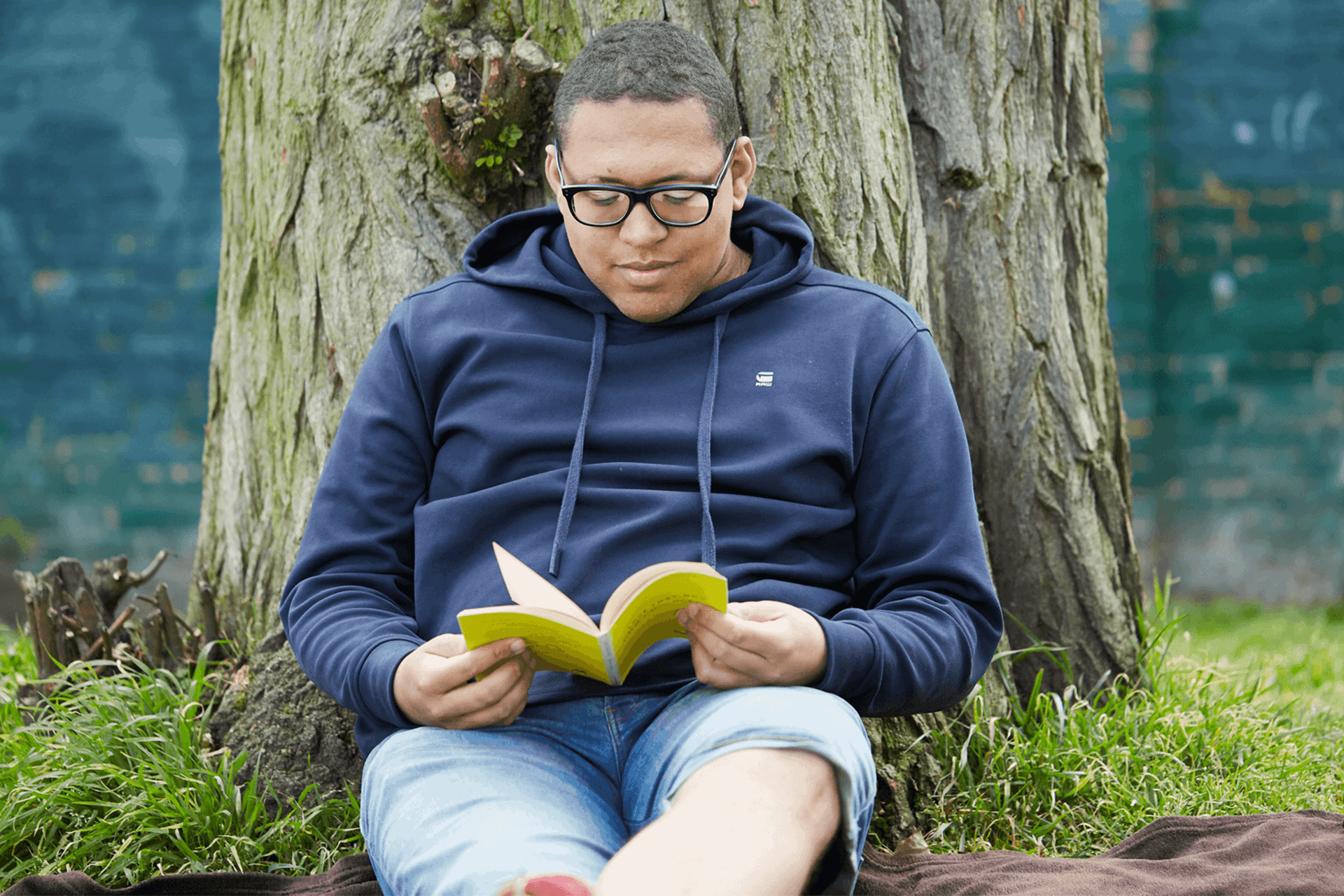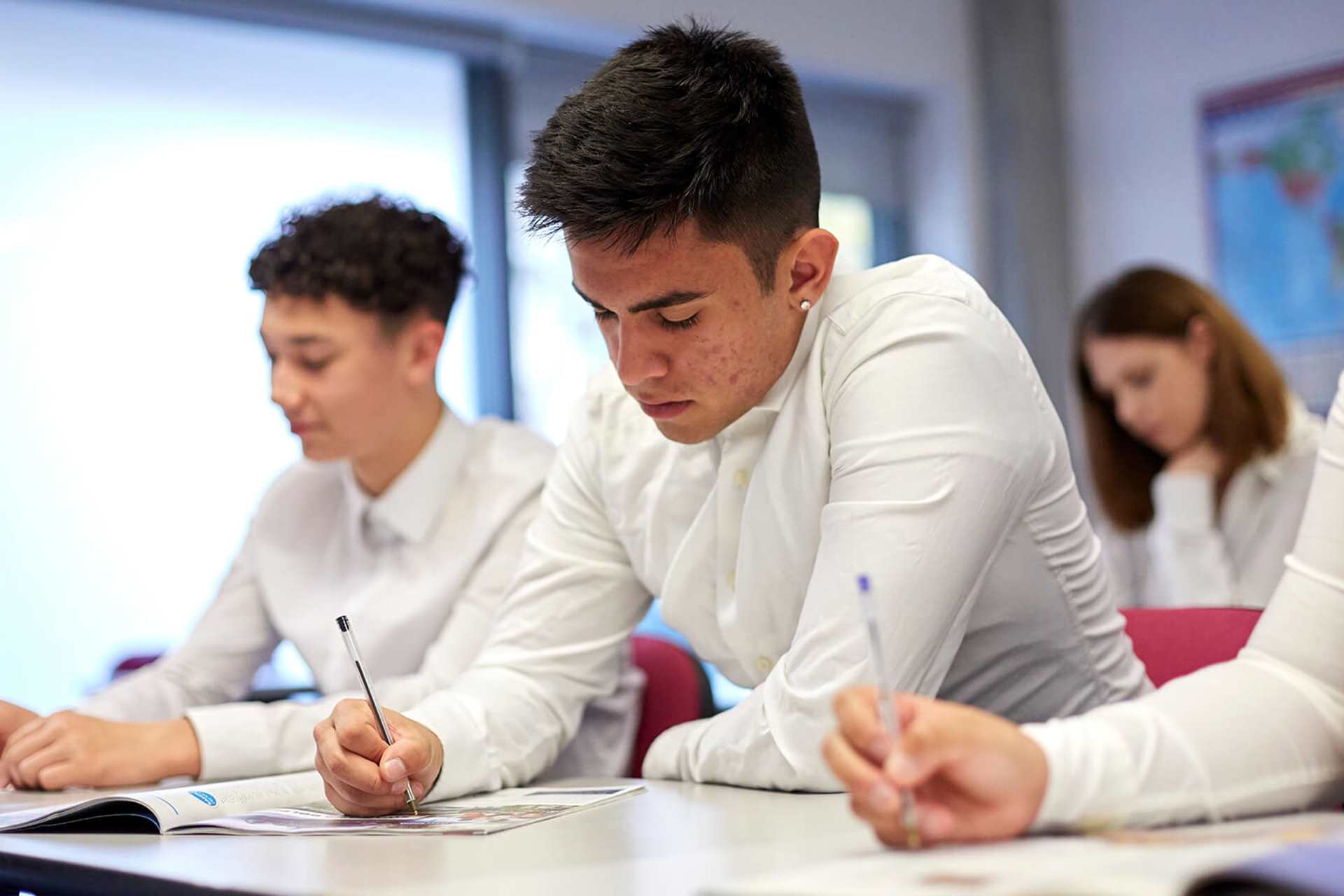Topics mentioned: disability and mental health, school, exam stress, self-care
About: As a Disabled young person, Samara shares three ways schools could better support mental health during A-levels, and her self-care tips for sixth form.
If you don’t receive the right support, it can often make this time all the more difficult to survive.
Sixth form and college can be one of the most stressful times of our lives. Many of us often opt for A-levels in the hope of being able to go to university and pursue a degree that we’re passionate about. This is why these two years can be crucial in ensuring that we get the grades we need to pursue our chosen career.
But in some instances, navigating through these two years can be even more challenging. Especially if you have a disability, whether that’s visible or invisible, such as epilepsy for me. This can bring about more turbulent challenges during A-levels. If you don’t receive the right support, it can often make this time all the more difficult to survive.
As a Disabled young person, here are the three main things I wish my teachers had said and done differently when I was in sixth form:
Everyone has their own individual strengths and talents, not all of them being necessarily academic.
Respected student diversity
Not every brain develops and works in the same way. Everyone has their own individual strengths and talents, not all of them being necessarily academic. This is something I feel my sixth form didn’t acknowledge very much.
Instead, they pushed and pushed several of us to study in ways that didn’t work for us. We were often advised to remain at sixth form until the early hours of the evening to achieve high grades, which they said could open more doors for us. Now I’m a year older and wiser, I know this was simply untrue.
Instead that time could’ve been devoted to self-care or helping us break up the days of intense study to do something we enjoy.
I wish school had took that into account rather than pushing us all in the same direction.
Understood our different aspirations
Once we finish school or college, we all have different aspirations and visions of what we want to do next. For those who are disabled like myself, the ability to make immediate decisions will vary from person to person. We need to cater for our own individual needs.
For example, for me the idea of going to university immediately provoked heavy anxiety. Especially knowing that I would have to adapt to a new environment and new people with the expectation to navigate my disability by myself.
I wish school had took that into account rather than pushing us all in the same direction.
Schools could offer daily drop-in sessions for us to talk in confidence about how we’re feeling.
Reiterated the importance of mental health
Alongside physical health, schools could make sure that mental health is not condensed into workshops or one weekly email. They could make sure it’s built into the widespread agenda, just as UCAS was.
Schools should be able to make all students feel supported and not ashamed to say they’re struggling with their mental health. Rather than being forced to repress these feelings for the sake of a statistic or league table.
Instead, schools could offer daily drop-in sessions for us to talk in confidence about how we’re feeling and where we’re at. Especially during the summer exam season.
Now I can proudly say that since finishing sixth form, the past year has actually been one of the best years of my life.
Finally, if you are reading this and currently in sixth form or college, there are two main pieces of advice that I want to give you:
-
Do not burn yourself out
Firstly, as tempting as it can be to work hard without resting during this time, please do not burn yourself out. Trust me, speaking as a student who attended sixth form and was obsessed with university and grades, it’s so important to know your limits. To know how much and how long you can devote yourself to studying before you need to take a break and put your own needs first.
-
Exam results do not define you
Secondly, if you fail a mock exam or even the real exam, it is not the end of the world - believe me. I passed my A-levels, didn’t do brilliantly, but still have them under my belt. Now I can proudly say that since finishing sixth form, the past year has actually been one of the best years of my life. I’ve obtained real-life work experience, devoted myself to writing more, and joined the incredible YoungMinds Activist programme.
Please take it from me that there are other routes to success. Each and every path is different and beautiful, so rest assured that you can achieve your dreams. No matter what happens.
Each and every path is different and beautiful, so rest assured that you can achieve your dreams.
More information and advice
We have tips and advice to help you find the support you need. Take a look at our guides.
Where to get help
However you're feeling, there are people who can help you if you are struggling. Here are some services that can support you.
-
Childline
If you’re under 19 you can confidentially call, chat online or email about any problem big or small.
Sign up for a free Childline locker (real name or email address not needed) to use their free 1-2-1 counsellor chat and email support service.
Can provide a BSL interpreter if you are deaf or hearing-impaired.
Hosts online message boards where you can share your experiences, have fun and get support from other young people in similar situations.
- Opening times:
- 24/7
-
Exam Results Helpline
Provides careers advice to help young people and their families decide on options following GCSE, A Level and Nationals results days.
Usually available through August. Opening days and hours may vary each year - check website for details.
If you live in Scotland, call 0808 100 8000.
